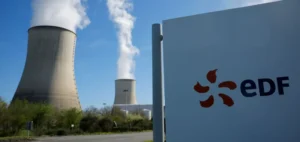The French Energy Regulatory Commission (CRE) has announced the monthly publication of its gas supply cost reference. This decision follows the implementation of the 2023 budget law. The first values of this reference have been published for May 2023 and amount to 44.93€/MWh.
Two functions for this reference
The methods for calculating this reference were described in the deliberation of January 25, 2023 and were approved by the Ministers of the Economy and Energy Transition on April 18, 2023. This reference is representative of the suppliers’ costs and was built in the continuity of the Regulated Gas Sales Tariffs (TRVG) formula.
This supply cost reference has two functions. First, it will allow the calculation of the compensation of gas suppliers for the announced extension of the gas tariff shield in the second half of 2023. Then, suppliers can also choose to use it directly in the construction of their offers previously indexed on the TRVG.
The cost of supply does not correspond to the total cost
It is important to note that the total price paid by a gas end-user includes all the cost components of supplying gas, including gas supply costs and non-supply costs such as transportation, storage and commercial costs. If the tariff shield is extended, the target gas price level defined by joint order of the ministers in charge of the economy, energy and the budget will also have an impact on the final price paid by the consumer.
From mid-May, the CRE will also publish a complete reference price for gas, which will include a subscription price and a price per kilowatt-hour. This indicative reference price will be published every month on the CRE and National Energy Ombudsman websites and will serve as a compass for customers who will be able to compare various supply offers from June onwards.






















